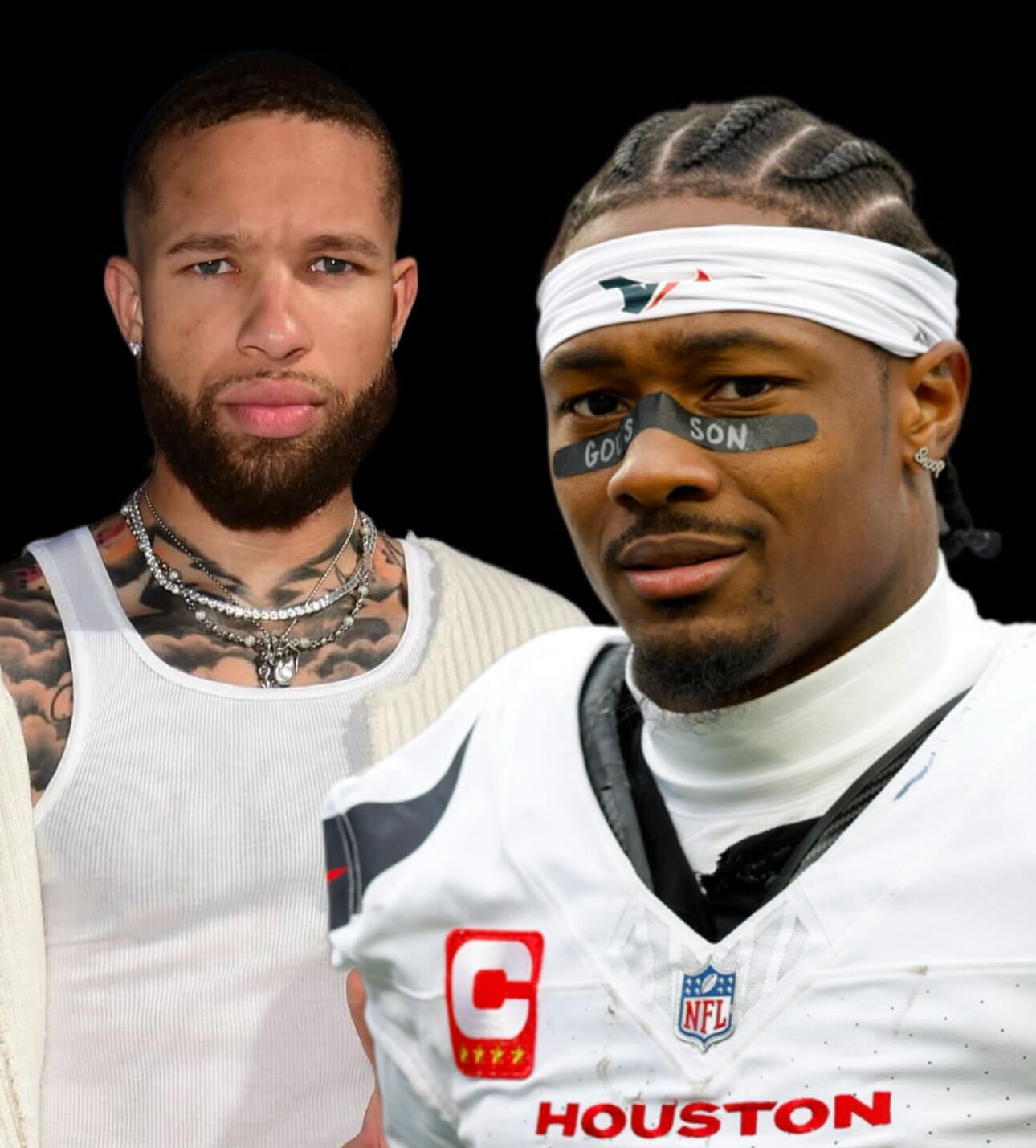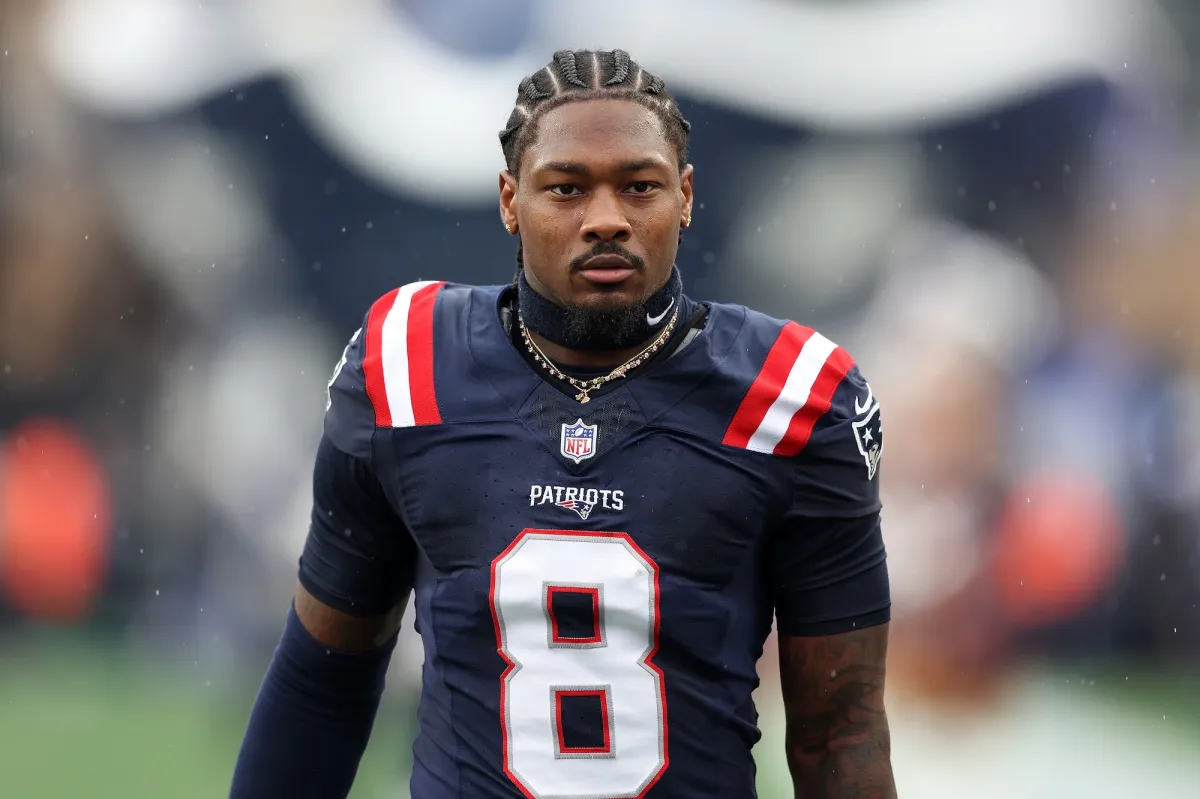
The case, which has sparked intense debate online and renewed scrutiny around viral allegations involving queer identity and celebrity culture, sets up a high-profile legal showdown as both sides prepare to take their sharply conflicting stories to court.
Stefon Diggs filed a libel lawsuit against Christopher Blake Griffith on Oct. 1, accusing him of spreading false claims that Diggs drugged, sexually assaulted and attempted to silence him after a 2023 encounter in Maryland. The lawsuit alleges Griffith fabricated the allegations for online visibility and damaged Diggs’ personal and professional reputation.
Griffith has publicly denied wrongdoing through his attorney and maintains he is the victim. Both sides say they are prepared to fight the issue in court.

In the lawsuit, Diggs says the incident at the center of Griffith’s claims took place in May 2023. According to the filing, Diggs, Griffith and several influencers attended a charity basketball game in Washington, D.C., then went to a local club before returning to Diggs’ Rockville, Maryland home. Diggs says he ended the evening by going to his bedroom, and his assistant asked Griffith to leave the house.
Diggs says that was the end of the interaction. But in the summer of 2025, Griffith posted a series of Instagram stories claiming the football player had drugged him with “laced candy,” sexually assaulted him and later conspired to have him killed to protect “gay/bisexual secrets.” Griffith tagged the NFL, the Patriots, Ugg and actress Sarah Jessica Parker, referencing Diggs’ endorsement deal with the brand.
Griffith also posted what he said was a copy of a police report from 2023. In the report, he claimed Diggs made unwanted advances, licked his ear and pressured him to stay quiet. The filing states that Diggs denies all allegations.
Diggs argues in the lawsuit that the posts were knowingly false and intended to “go viral” by invoking shock and celebrity appeal. He cites sponsorship concerns, professional backlash and significant reputational harm.
Diggs, 31, is seeking damages and attorneys’ fees. The lawsuit does not list an amount.
Griffith’s attorney, Jake Lebowitz, issued a statement to multiple outlets rejecting Diggs’ version of events.
“Mr. Griffith is looking forward to showing the world in court that regardless of the fairy tale fabricated by Mr. Diggs’ high-priced New York lawyers, he is the victim of Mr. Diggs’ unwanted sexual advances and his brother’s violent attacks,” Lebowitz said. He added that counterclaims for sexual battery will be filed soon.
Both sides have framed the case as a matter of truth, reputation and survival. In the age of public storytelling, where a single screenshot becomes its own courtroom, both men now face a legal system tasked with sorting through digital noise.
The public response online has split sharply. Some users rallied behind Diggs, criticizing what they perceived as Griffith using queer identity and trauma language to manufacture visibility. Others expressed support for Griffith, arguing that allegations of sexual misconduct should be taken seriously regardless of a defendant’s fame.
The incident taps into long-standing tensions in queer communities and professional sports. Rumors around athletes’ sexuality, especially Black male athletes are often charged with homophobia, voyeurism and cultural projection. At the same time, queer people who speak openly about harm often face disbelief, dismissal or ridicule. The case touches both wounds at once.
Commentary is usually limited, but here the cultural context is unavoidable; social media has grown more comfortable turning allegations into spectacle, collapsing the line between accountability and entertainment. When the internet becomes a courtroom, nuance rarely survives the scroll.
As the legal dispute gained public attention, Diggs and rapper Cardi B announced the birth of their child on Nov. 13. In a statement shared to Instagram, Cardi described the moment as the start of a new season for their family. “Starting over is never easy but it’s been so worth it,” she wrote. “One more reason to love me more than anything else or anyone else so I can continue giving my babies the love and life they deserve.”
The announcement added another layer to public interest in Diggs, who is now balancing a legal controversy, a new child and a demanding NFL season.
Libel cases involving allegations of sexual misconduct are complex and often lengthy. Courts must determine whether Griffith’s statements meet the legal threshold for defamation, whether he believed they were true at the time he made them and whether Diggs can demonstrate measurable harm.
For now, the lawsuit signals that Diggs intends to challenge the accusations publicly and aggressively. Griffith’s team, meanwhile, says it will countersue and present evidence supporting his claims.
While the legal process moves forward, the case raises broader questions about the collision of celebrity, queer identity, digital influence and public accusation. It also highlights how easily online platforms transform pain into performance, and how quickly reputations can be rewritten by a single viral moment.
There is no verdict yet, only two men, two narratives and an audience conditioned to consume conflict faster than the courts can process it. The truth will emerge in time, but the internet rarely waits for the facts.